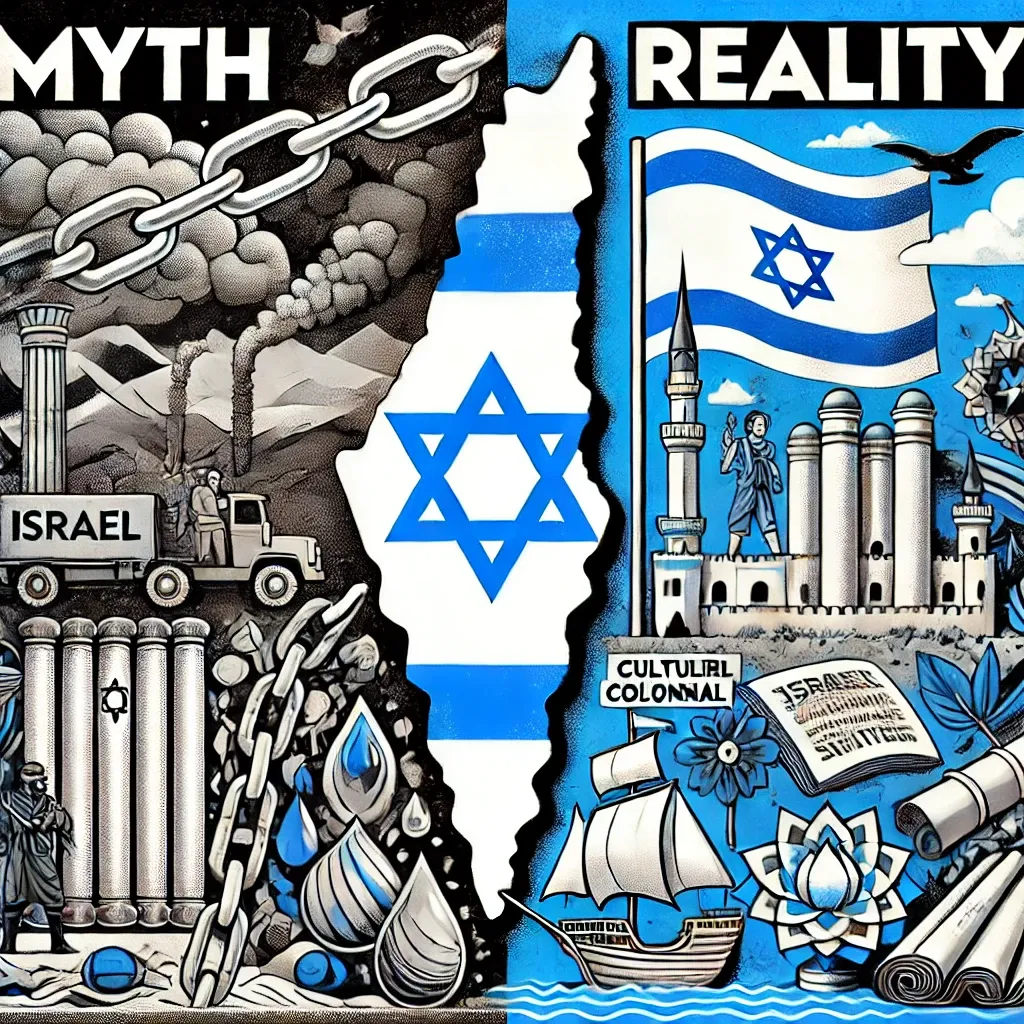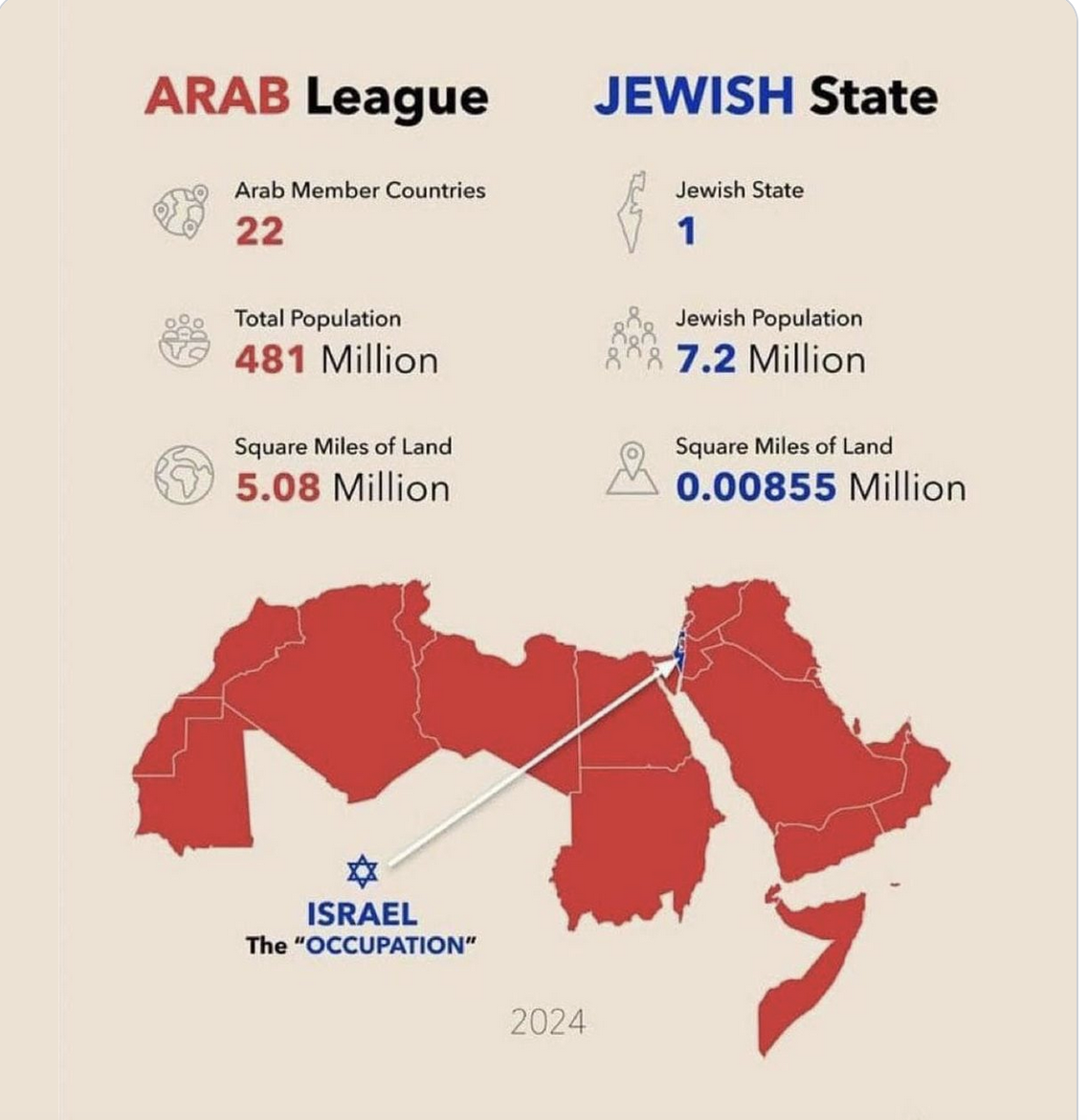

By Dr. Tim Orr
In the increasingly polarized debate over Israel and Palestine, one narrative has gained traction among progressive circles: the idea that Israel is a “settler colonial” state, with its Jewish citizens cast as white oppressors. This oversimplified and misleading narrative has led to dangerous justifications for violence, particularly in the wake of events like the October 7, 2023, Hamas attack. But is this narrative rooted in reality, or does it ignore the complex history of the Jewish people and their connection to the land of Israel? As academic theories of settler colonialism and critical race theory shape public opinion, we must ask: how did we arrive at the point where Jewish victims are dehumanized? Israel’s very existence is called into question. Let’s dive deeper into this troubling trend and unpack the myths fueling it.
The Settler Colonialism Framework
Settler colonialism is a term that historically referred to European conquests where settlers displaced indigenous populations to form new societies. For example, when the British, French, or Spanish colonized lands in the Americas, Africa, and Australia, they often wiped out or marginalized indigenous peoples. In recent academic discourse, however, this theory has been extended beyond its original historical context to include Israel. Scholars who subscribe to this view claim that Jews returning to Israel from the diaspora—particularly European Jews—displaced Palestinians, who are seen as the indigenous population.
The problem with applying settler colonialism to Israel is that it misrepresents the nature of Zionism and Jewish history. Zionism was not a colonialist project of conquest but a national liberation movement. Jews, particularly those who faced centuries of persecution in Europe and the Middle East, sought to return to their ancestral homeland, a connection deeply rooted in their religion, culture, and history. To reduce this to mere colonialism ignores the fact that Jews have had a continuous presence in the land of Israel for millennia, long before modern national borders were drawn.
Moreover, this framework disregards the complex demographics of modern Israel. Not all Israeli Jews are of European origin; many, including Mizrahi Jews, came from the Middle East and North Africa after being expelled from their homes in Arab countries. These Jews are indigenous to the region and experienced their form of displacement and persecution. The simplistic settler-colonialism framework fails to account for these nuances, thus promoting an incomplete and distorted understanding of the Israeli-Palestinian conflict.
Critical Race Theory and Intersectionality
Critical race theory (CRT) and intersectionality—terms originating in U.S. academic and activist circles—focus on power structures and how race, class, and gender intersect to produce systemic inequality. CRT divides society into oppressors and oppressed, often assigning these roles based on racial and ethnic identities. In this framework, “white” people are typically seen as the oppressors, while “people of color” are cast as the oppressed. Intersectionality adds complexity, recognizing that an individual can experience oppression on multiple fronts (e.g., race, gender, class).
When this lens is applied to Israel, Jewish Israelis are often cast as “white oppressors” while Palestinians are viewed as oppressed “people of color.” This is an extremely reductionist view that ignores the diverse ethnic composition of Israeli society. Jewish Israelis include Sephardi, Mizrahi, and Ethiopian Jews, who come from non-European backgrounds and cannot be easily categorized as “white.”
Additionally, the idea that Jews, who have been historically marginalized, persecuted, and subjected to genocide, could suddenly become the “white oppressors” in Israel ignores the long history of Jewish victimhood and resilience.
The way CRT framework relies heavily on the binary of “oppressor” and “oppressed” without taking into account the deep historical and religious ties that both Jews and Palestinians have to the land. It dismisses the Jewish claim to self-determination and nationhood as inherently illegitimate purely because of a simplistic racial analysis. This binary also ignores the agency and responsibility of both parties in the conflict, making it difficult to pursue genuine reconciliation or understand the complex motivations behind each side’s actions.

Become a Full Paid Member
The Soviet Influence on Anti-Zionism
The portrayal of Israel as a “settler colonial” state has roots in Soviet anti-Zionist propaganda, which emerged during the Cold War. Starting in the 1960s, the Soviet Union framed Zionism as a form of Western imperialism. This was part of a broader strategy to align itself with Arab states and national liberation movements in the Third World. During this period, the Soviet Union and its allies sought to delegitimize Israel on the global stage, portraying it as a puppet of Western imperialist interests and a colonial oppressor of the Palestinians.
The United Nations’ infamous “Zionism is racism” resolution of 1975, which was supported by the Soviet bloc and many non-aligned nations, encapsulates this narrative. Although the resolution was repealed in 1991, the stigma of Zionism as a form of racial oppression has persisted, particularly among leftist intellectuals and activists. Soviet propaganda left a lasting imprint on global political discourse, linking Zionism with colonialism and apartheid. This framing has since been absorbed into modern progressive movements that emphasize anti-imperialism, even though it overlooks Israel’s role as a refuge for Jews fleeing persecution.
The Soviet anti-Zionist narrative also downplayed or outright ignored the persecution that Jews faced in Arab and Muslim-majority countries, as well as the expulsion of nearly 800,000 Jews from these lands after the establishment of Israel. By framing Israel solely as a colonial project, the complex history of Jewish displacement in the Middle East is erased from the conversation.
October 7th and the Perception of Israeli Victims
The events of October 7, 2023, in which Hamas launched a surprise attack on Israel, brought the issue of settler colonialism to the forefront of public debate. Many progressive groups and academics who sympathized with the Palestinian cause justified or celebrated the attack, claiming that all Israeli civilians, regardless of where they lived, were “settlers” and thus legitimate targets. This logic, rooted in settler-colonial theory, posits that no Israeli presence on the land is legitimate, whether in Tel Aviv or a West Bank settlement.
This framing is not only dangerous but morally bankrupt. It erases the humanity of Israeli civilians, including women, children, and the elderly, and justifies their murder under the guise of “resistance.” The fact that Hamas targeted people living inside Israel’s pre-1967 borders—a region widely recognized by the international community as part of the sovereign state of Israel—highlights how settler-colonial theory offers no meaningful distinction between legitimate and illegitimate targets. Under this framework, all Israelis are complicit in the oppression of Palestinians and, therefore, subject to violence.
This ideology significantly departs from traditional warfare and international law norms, distinguishing combatants and civilians. By blurring this line, settler-colonial discourse fuels extremist rhetoric and encourages further violence, making any prospect of peace even more remote.
The Irony of Jewish Indigeneity
Perhaps the most ironic aspect of the settler-colonial narrative is that it ignores the indigenous connection of the Jewish people to the land of Israel. Zionism, far from being a European colonial enterprise, was a movement for Jewish self-determination rooted in the historical, cultural, and religious ties Jews had to the land. Jews have lived in Israel continuously for thousands of years, and the re-establishment of a Jewish homeland was a response to centuries of persecution and exile.
For Jews, Zionism represents a return to their ancestral homeland, not the creation of a new colonial state. This is particularly true for Mizrahi Jews, who are indigenous to the Middle East and were expelled from Arab countries after the establishment of Israel. These Jews were refugees who found safety and belonging in Israel, not settlers who sought to displace others.
The narrative that casts Jews as “white European colonizers” erases the lived experiences of non-European Jews and ignores the fact that Zionism was, in part, a response to colonialism and imperialism. It also overlooks the religious significance of the land to the Jewish people. While Palestinians have their legitimate claims to the land, these claims must be understood in the context of competing indigenous narratives rather than through a simplistic lens of colonial oppression.
Conclusion
Reducing the Israeli-Palestinian conflict to a simplistic settler colonial framework distorts the truth and fuels further division. By ignoring the historical connection of Jews to the land of Israel, erasing the persecution faced by Mizrahi Jews, and promoting a binary of oppressor and oppressed, this narrative does more harm than good. If we seek a just and lasting peace, we must move beyond reductionist ideologies and engage with the deeper, nuanced realities of the region. Only then can we recognize the humanity on both sides and work toward a future where both Israelis and Palestinians can coexist in peace, dignity, and security.
Reference
JNS TV. (2024, September 26). Why are Jews called 'settlers colonialists' w/ Adam Kirsch | Think Twice [Video]. YouTube. https://www.youtube.com/watch?v=iJ75KUVRyM4
Tim Orr is a scholar, Evangelical minister, conference speaker, and interfaith consultant with over 30 years of experience in cross-cultural ministry. He holds six degrees, including a master’s in Islamic studies from the Islamic College in London. Tim taught Religious Studies for 15 years at Indiana University Columbus and is now a Congregations and Polarization Project research associate at the Center for the Study of Religion and American Culture at Indiana University Indianapolis. He has spoken at universities, including Oxford University, the University of Tehran, and mosques throughout the U.K. His research focuses on American Evangelicalism, Islamic antisemitism, and Islamic feminism, and he has published widely, including articles in Islamic peer-reviewed journals and three books.
Here are some of my articles that deal with Woke antisemitism.
 Dr. Tim Orr's BlogDr. Tim Orr
Dr. Tim Orr's BlogDr. Tim Orr
